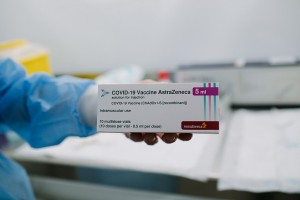
Geneva: The World Health Organisation has stated that since last Friday, several more countries suspended the use of AstraZeneca vaccines “as a precautionary measure”, after reports of blood clots in people who had received the vaccine from two batches produced in Europe.
The latest to suspend the use of AstraZeneca vaccines are France, Germany, and Italy. The others include Denmark, Iceland, Indonesia, the Democratic Republic of Congo, and the Netherlands.
“This does not necessarily mean these events are linked to vaccination, but it’s routine practice to investigate them, and it shows that the surveillance system works and that effective controls are in place,” WHO Director-General Dr. Tedros Adhanom Ghebreyesus, said here.
Also read: WHO lists Janssen vaccine for emergency use in all countries for COVID-19
WHO’s Advisory Committee on Vaccine Safety has been reviewing the available data, is in close contact with the European Medicines Agency and will meet on March 16, 2021.
“But the greatest threat that most countries face now is lack of access to vaccines,” Dr. Ghebreyesus said, adding that every day he received calls from senior political leaders around the world, asking when their country will receive their vaccines through COVAX.
He welcomed that the commitment by the Quad countries to deliver up to 1 billion doses of vaccine in the Asia-Pacific region through COVAX.
As the launch of the COVID-19 Solidarity Response Fund, an unprecedented collaboration between WHO, the United Nations Foundation, the Swiss Philanthropy Foundation and many other partners to generate funds for the pandemic response, including WHO’s Strategic Preparedness and Response Plan, completed one year on March 15, WHO acknowledged that first time in its history, WHO received donations from the general public and was able to raise US$242 million from more than 662,000 donors, “individuals and corporations”.
With your support, we shipped more than 250 million items of personal protective equipment; Provided technical support to hundreds of laboratories; Supplied more than 250 million COVID-19 tests; Coordinated the deployment of more than 180 teams and missions; Delivered oxygen and supported over 12 thousand intensive care beds to prevent health systems from being overwhelmed; Provided training through OpenWHO.org, which has more than 5 million registrations for courses that are delivered in more than 50 languages, from Albanian to Zulu,” Dr. Ghebreyesus said.
However, while warning that the the pandemic was not over, he referred to the launch of the Strategic Preparedness and Response Plan for 2021, three weeks ago, which outlines how WHO will support countries in responding to the pandemic, he said the plan called for a total requirement of US$1.96 billion.
“We thank all countries and organizations who have already committed funds,”he said.
– global bihari bureau




